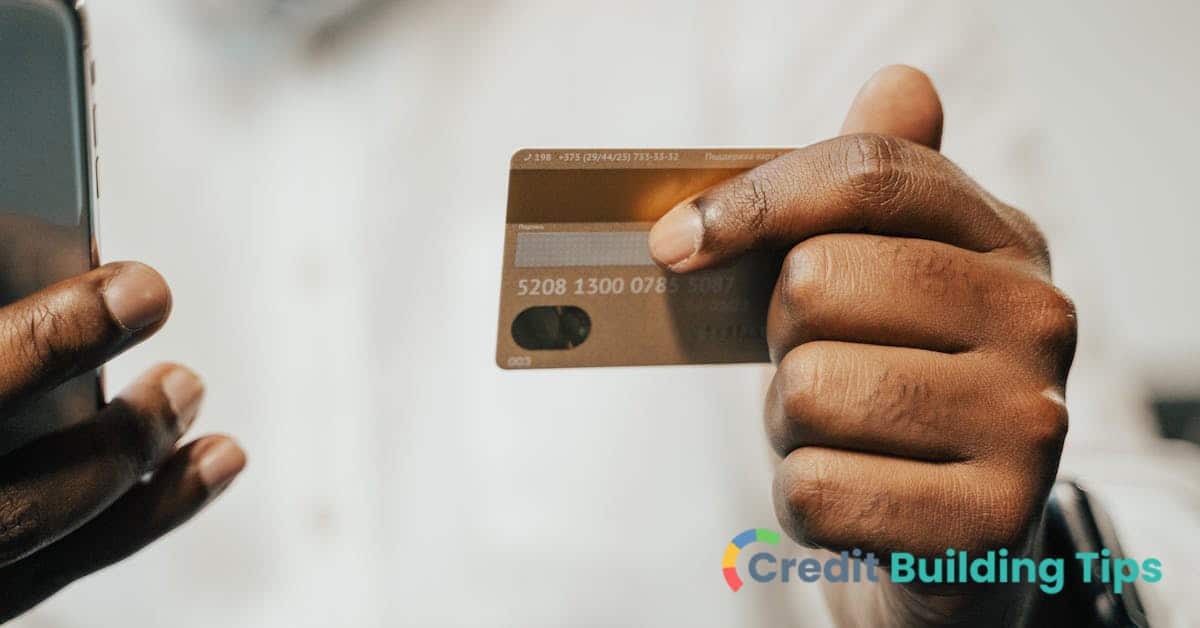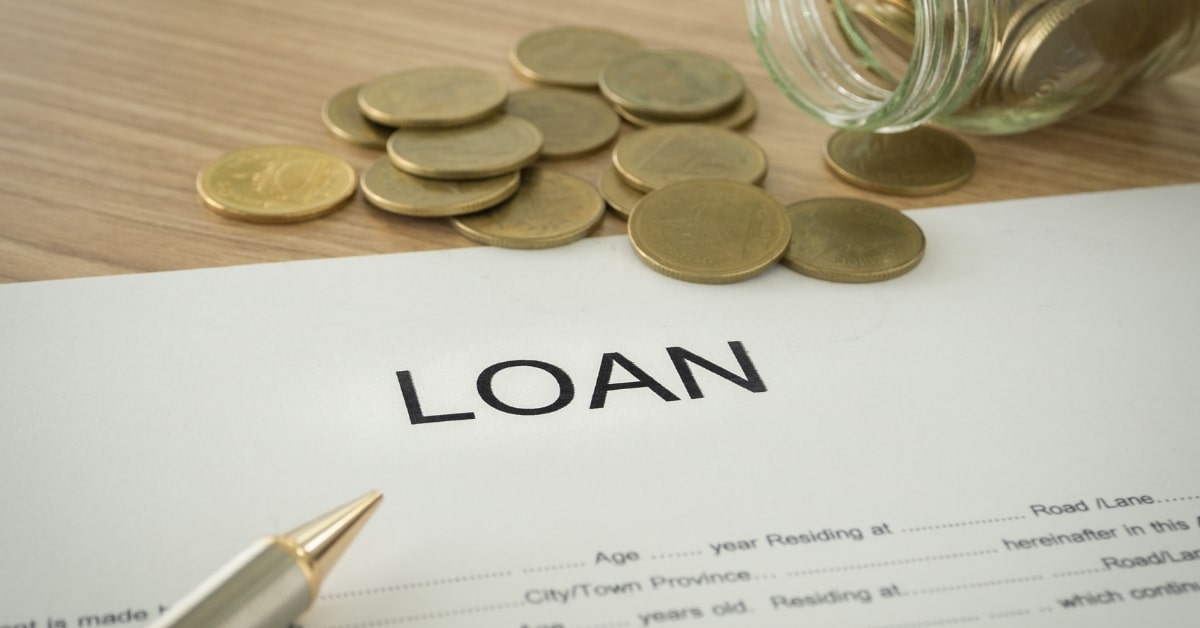If your credit score is lower than you want it to be, learning what builds your credit the most can help you prioritize the most important factors in your efforts to boost your score.
What can you do to increase your credit score? What has the biggest impact? How quickly can you expect changes you make to reflect on your credit profile?
 There are several different strategies you can use to build your credit quickly, including reducing your credit utilization ratio, using a third-party service like Experian Boost, or becoming an authorized user on someone else’s account.
There are several different strategies you can use to build your credit quickly, including reducing your credit utilization ratio, using a third-party service like Experian Boost, or becoming an authorized user on someone else’s account.In this article, we’re going to take a closer look at what builds your credit the most, the steps you can take to increase your credit score quickly, and the habits you can practice to build your score over time.
Before we can talk about what builds your credit the most, let’s quickly go over how your credit score is calculated. There are several different credit scoring models out there, each of which weighs these factors a bit differently.

In general, though, you can expect that payment history and credit utilization, in that order, are the most important factors when it comes to the health of your credit score.
Sometimes, you don’t have a ton of time to wait around for your credit score to inch up over time. If you’re looking to see some real results right away, consider trying one of the following.
Are you eager to build your credit right away but you’re struggling with the fate of a limited credit history? Starting to build up credit from scratch can be frustrating and time-consuming. After all, you need to be given access to credit in order to build up your credit file, but lenders and creditors are wary of giving out lines of credit or loans to people with thin credit profiles.

One of the fastest ways to build your credit is to use an alternative data service. This is a way to add some positive information about your financial responsibility that usually don’t show up on your credit report.
This service allows users to include their utility and telecom bill payments in their credit reports, potentially raising their score by reflecting timely payments not typically considered in traditional credit scoring models. By leveraging such alternative data services, individuals can see an immediate uptick in their credit score by showcasing responsible payment behavior across various accounts.
Experian Boost can increase your score right away. However, if you choose to use a rent reporting service, how long it takes to see a change in your score depends on the service and your rental history.
It depends.
Using Experian Boost or rent reporting services might have a significant impact on your score or it might not change that much. If you already have a robust and healthy credit history, Experian Boost might not be as beneficial to you as it would be for someone with a thin, imperfect credit score.
One of the most impactful ways to improve your credit score is by reducing outstanding debt.

High credit utilization—the amount of credit used compared to the total credit available—can adversely affect your score. Focusing on paying down credit card balances and other outstanding debts can significantly boost your credit score by reducing this utilization ratio.
Reducing your balances by making payments can help you improve your credit very quickly.
You’ll have to wait for the lower balance to be reported to the credit reporting agencies, but once this information has been passed along you should see improvements in your score.
Paying down your debt and decreasing your credit utilization ratio is one of the most impactful things you can do to positively contribute to your credit score. Your credit utilization is the second most important factor for your score after making your payments on time.
Keeping your balances low is only one of the ways you can improve your credit utilization ratio. The other side of the equation is increasing your credit limit.

Requesting a credit limit increase can positively impact your credit score. If you have a good payment history and responsible credit usage, a higher credit limit can decrease your credit utilization ratio, potentially elevating your credit score. However, it's crucial to use this increase in limit responsibly and not accrue additional debt.
This is another really fast way to see a change in your credit score. As soon as the credit limit increase has been reported to the credit bureaus, your score will be updated to incorporate the new information.
Increasing your credit limit could actually have a pretty big impact on your credit score. However, how much benefit you see is going to depend on the current state of your credit profile.
For example, people with thin credit profiles will probably see a pretty big difference in their score once their limit is raised. Those with a much more established credit history, on the other hand, will likely see much benefit from a credit limit increase.
For those looking to establish or rebuild credit, secured credit cards offer a practical solution.
These cards require a cash deposit as collateral, which typically determines the credit limit. This means that if you put down $500 as a deposit, you’ll usually have a $500 credit limit.
By using a secured card responsibly—making timely payments and keeping balances low or at zero—you can demonstrate creditworthiness, which can translate into an improved credit score over time.
The extent to which a secured credit card will help your credit score depends on your existing credit profile. If you don’t have much credit or your credit is on the lower side, you’ll see more of an impact than if your credit score is already healthy.
Being added as an authorized user on someone else’s credit account can potentially boost your credit score, so long as the primary account holder’s credit history is positive.
This strategy allows you to benefit from another person’s responsible credit usage. At the same time, you’ll want to be cautious before using this strategy, as it won’t help your score if the primary account holder has a troubled credit history.
This is one of the fastest ways you can improve your credit score, assuming the person who added you to their account has a strong credit history. Once the credit account you’ve been added to is reported to the bureau, your credit score will reflect the new, positive information.
It’s possible that becoming an authorized user will have a significant impact on your credit score. However, how much it influences your score depends on your existing profile.
For instance, if you already have established credit but a bunch of derogatory marks on your report, you probably won’t see as much benefit as someone who has a thin credit file. Furthermore, the person who is adding you to their account needs to have a healthy credit profile themselves for it to contribute positively to your credit report and score.
While it might seem counterintuitive, addressing collections accounts can positively impact your credit score.
Negotiating with creditors or collection agencies to settle debts or establish payment plans can prevent further negative impacts on your credit report. Over time, as you address these accounts, their impact on your score diminishes.
Before you run out and make payments on that old collections account, though, it's a good idea to strategize. Just because a collections account falls of your credit report doesn't mean you aren't still legally responsible for repayment. At the same time, making a payment can restart the clock on how many years it will take for the derogatory mark to fall of your report.
Are you trying to get a collection account completely removed from your credit report? Make sure you check out my post about how to delete a collection in exchange for payment.
The answer to this question depends on a number of factors. Some credit scoring models don’t factor in paid collections when calculating your score. For these models, you’ll see a bump in your score as soon as your collections account is marked as paid off.
However, other models do incorporate collections accounts even once they are paid off. Furthermore, if you are disputing a collection account or asking the debt collector to delete the account, you probably won’t see any change for a few months.
How much your score changes after paying off collections is going to vary. Your credit score can be seriously damaged by having an account in collections. If you are able to get the debt collector to stop reporting the account, it could help your score quite a bit.
However, if the account continues to be reported, then the impact you’ll see will depend on the credit scoring model used. VantageScores and more recent FICO models don’t incorporate paid collections into their calculation, but older FICO models will still ding your score if there are paid collections accounts on your profile.
Regularly monitoring your credit report is fundamental to understanding your financial situation.

When you keep an eye on your credit report, you can detect and address any errors or discrepancies that might be negatively impacting your score.
You can use AnnualCreditReport.com to gain free access to your credit report from each of the three major credit bureaus. This is one of the most important things you can do to stay informed about your credit health.
When you notice an error on your credit report, you’ll want to dispute it with the credit bureaus or your creditor right away. When you make a dispute claim with the credit bureaus, they have thirty days to look into the situation and get back to you.
How much this impacts your score depends on the circumstance. If there’s a mark on your credit report saying that you missed payments when this isn’t the case, for example, you can see a big jump in your score.
While there are a number of ways you can increase your score relatively quickly, you might find that none of these solutions offer you much help. In general, it takes time to increase your credit score. If you are willing to put in the work to manage your credit, you can see your score improve over time.
The most important part of your credit score is your payment history. This means that making consistent and punctual payments is one of the best things you can do to keep your score healthy.
Late payments can significantly dent your score, so ensuring on-time payments for all credit cards, loans, and bills is crucial. Setting up automatic payments or reminders can help you stay on track and avoid unnecessary penalties or negative impacts on your credit report.
The second most important part of your credit score is your credit utilization ratio. This is the ratio of your credit card balances to your credit limits.
Keeping your balances low, ideally below 30% of your credit limit according to most experts, showcases that you are a responsible borrower. Paying off balances in full each month not only demonstrates financial discipline but also keeps your utilization rate low, positively impacting your credit score.
Though it’s not the most important factor when calculating your credit score, the length of your credit history matters in determining your creditworthiness.
Closing old accounts can shorten your credit history, which might lower your average account age and subsequently affect your score. Even if you're not actively using old credit accounts, keeping them open can contribute positively to the length of your credit history, benefiting your score in the long run.
A word of warning here, though: if you’re struggling with a spending problem, closing your old accounts might ultimately be the best strategy to avoid getting back into debt. Account age is important for your credit score, but staying out of spiraling debt is more important than having a perfect score.
Another thing you can do to build your score over time is work to diversify your credit portfolio.
At the same time, you don’t want to apply for too many new credit cards or loans at one time. When you do this, lenders can see all of the new hard inquiries on your profile. This can indicate to them that you’re strapped for cash and that you would struggle to pay back any money you borrow.
Assuming that you are applying for new credit in a reasonable way, though, having a mix of credit types can positively impact your score. This means having different types of accounts on your credit report, such as:

Responsible management of various credit accounts showcases your ability to handle different financial obligations, reflecting positively on your creditworthiness.
Building off of the previous point, it’s important to be careful not to apply for too much credit at one time.

Each time you apply for new credit, a hard inquiry is made on your credit report, which can temporarily lower your score. Multiple inquiries within a short period might signal to lenders that you're in financial trouble or a higher-risk borrower, potentially impacting your score negatively. Being selective about new credit applications and spacing them out can help mitigate this impact.
Having a low credit score can have a big impact on your financial opportunities. As you work to build your credit, you might be wondering how possible it is to increase your score by 100 points relatively quickly.
The truth is, how much your credit score will improve using the tactics in this article is going to depend on the current state of your credit report.
If your score is poor right now, making positive changes can have a pretty big impact. The worse your score is, the more a small change will reflect in your score.
So, what builds your credit the most? The answer is that it depends on your current credit profile and financial situation. In general, though, there are a number of tactics available that you can use to have a positive impact relatively quickly.
Some of the things you can do if you want to have the biggest impact on your score include:
When you first start learning about credit scores and credit reports, the whole thing can feel pretty overwhelming. However, it’s worth overcoming the obstacles in your way and gaining a solid understanding of the system. The better your credit profile, the more financial opportunities will be open to you in your life.
Are you on a mission to improve your credit? Are you looking for practical advice regarding how you can build your credit over time? Make sure you check out the rest of our Credit Building Tips blog!